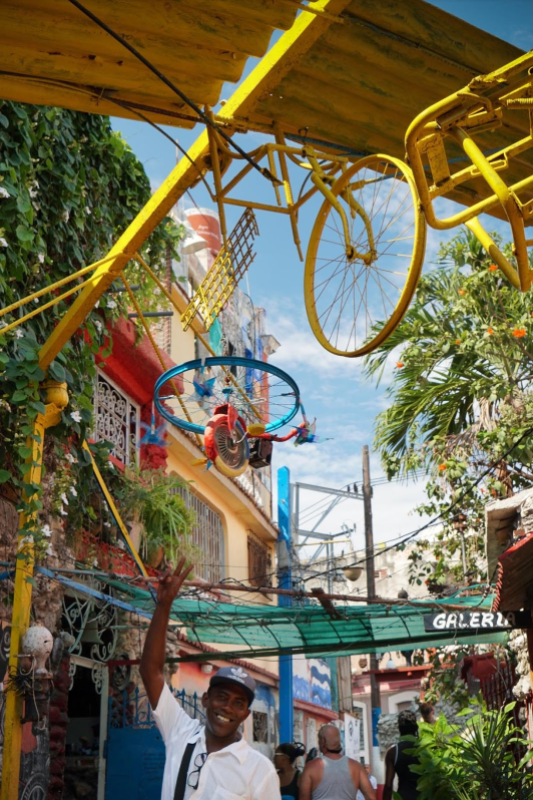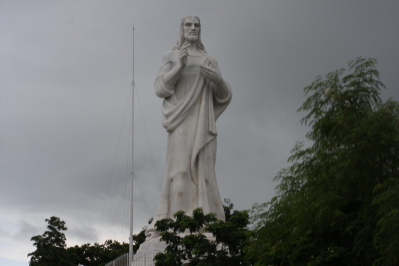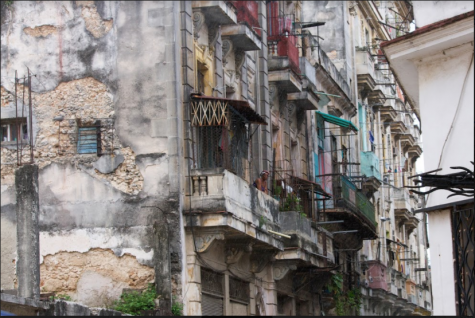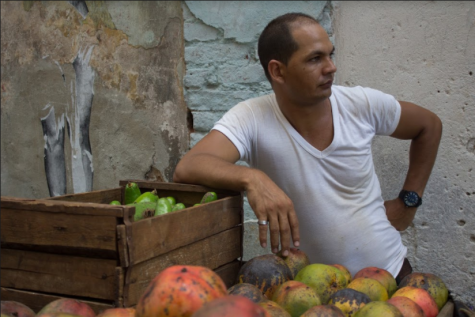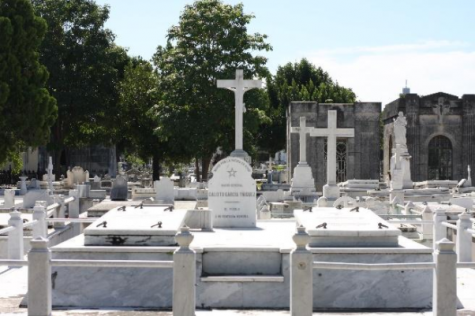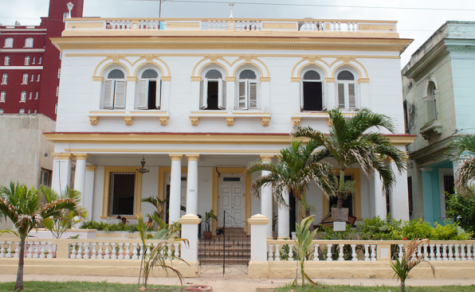Alexandra Archuleta
Life in the slow lane
Life for the socialist citizens of Havana, Cuba moves at a different pace. In the land of 1950s vintage cars, slow internet, and even slower hospitality, it’s more than apparent that the people of Havana are on island time. As my fourth day in Havana comes to a close, I can’t help but compare and contrast the cultural differences of the pace of life in Havana versus the US.
I was told that waiting in lines is the epitome of Cuban culture. Time passes by at a different rate as I observe workers who truly take their time. There is no sense of urgency, no predictable pattern of behavior, nor the concept of efficiency. People are accustomed to earning a salary regardless of performance or merit. A reward is a foreign concept and the culture as a whole lives life without a hurry.
Cuba is a mere 90 miles from its closest neighbor, the United States, although conceptually and culturally it is a million miles away. I have waited in lines that practically went nowhere for 20 minutes. I have seen hotel staff standing idly, just staring out windows. I wonder what it would be like to daydream my work day away without a care in the world.
An inundating inquisitiveness overpowers me and I wonder how it would be to spend my days walking the cobblestoned streets of Old Havana with music constantly in the air. Havana is a perfect blend of sensuality and socialism. The slow pace of life is an acquired taste to the contemporary American, but suitable to the social and political climate of Cuba nonetheless.
Beauty in the broken
Dilapidated buildings line the patchy streets of Havana, Cuba adding an alluring appeal to the background of the city. There’s an undeniable element of beauty to be discovered in a crumbling structure. At first glance, these ruins can leave an unnerving impression; but looking closer, I notice these buildings tell a story of a setting that has become overridden by nature and overlooked by its régime. I can’t help but draw a correlation between the Cuban government’s mistreatment of its people to the dilapidation of the infrastructure of the country.
On the afternoon of Tuesday, July 4, 2017, I paid a visit to Muraleando, a grassroots community art project that has brought pure life and colorful beauty into an underprivileged barrio in the outer city limits of Havana. This area may be deemed poor under economic standards, but the people and the environment itself are both visually and culturally rich. Walking through the meandering alleyways, I can feel the genuine passion in the air as proud artists use their best English to get my attention and show off pieces that they are enthusiastically proud of.
One of these proud artists gets my attention and invites me to his gallery. I walk into a small 6’x 6’ room with a narrow spiral staircase leading to the second level, and tiny tile stairs leading down to an even smaller basement type room. The man gestures for me to take the tile steps down, and I find myself in a gallery. As I continue to make small talk and establish a relationship with the artists, I find them becoming increasingly comfortable with me despite my camera and outsider appearance. This is when I feel it’s appropriate to inquire about the main focus of my project, las libretas, or food ration books.
The laid-back, chatty atmosphere quickly takes a pivotal turn and one artist watchfully lights his cigar and without looking up warns me, “if you want to come and enjoy my country, that is fine; but please, please do not try to understand it.” I put the lens cap back on my camera and head up the stairs. This moment is the first time I realize that the sensitivity of my topic hits very close to home for the people directly affected by it. Where I find beauty in the decomposition of their neighborhood and culture, they find shame and ultimately resentment. The ruined buildings that line the streets of Havana are interesting nonetheless; but irrefutably tell a story of pain, misfortune, and disgrace.
Perspective is half the battle
As I spend increasingly more time walking the streets and conversing with the people of Havana, I slowly begin to discover that the overall impression someone develops on a topic is almost entirely reliant on perspective, and only a very small part relies on the actual circumstance itself. The concept of poverty in Cuba is very subjective. Many people I have encountered in Cuba wear tattered clothes, have poor hygiene, and simply thrive in less than desirable living conditions. I would consider this to be a poor living condition.
I know I wouldn’t be able to show up to work with holes in my clothes, be taken seriously by my colleagues if I had an unkempt appearance, or felt comfortable if my basic food items were rationed by my government; but for many Cuban people, this is their lived reality and they tend to not give any of it a second thought. When an impoverished life is all you know, there is nothing to compare it to and no desire to achieve more. In Cuba, rocking the boat with controversy is a huge risk, and working hard deems very little reward.
On the morning of Thursday, July 6, I had an interview with Gilberto Alfonso, a merchant who sells a variety of cured meats at the 17 and G street market near central Havana. Gilberto has been working as a merchant at the market for the past 14 years, however, he has been selling cured meats specifically for the past 9 months after losing his job selling fruits and vegetables. The market is entirely owned by the Cuban government; Gilberto leases his space by paying a tax in order to run his business. He says he does not have a hard time acquiring his supplies for his business, and he is able to make a profit despite the tax and fees he has to pay to the government.
Despite his positive outlook, I learn he has to drive pretty far outside the city to the countryside to pick up his supplies. I notice a lot of the Cuban people have no hang ups completing time-consuming tasks. It’s almost as if an essential part of Cuban culture allows you to get away with little to no productivity. No task is too time-consuming, nor is any line is too long of a wait. Being on this island gives anyone, local or visitor, an excuse to take life in at a slow pace. As a tourist from a country infatuated with efficiency, this is a life I struggle to understand and my curiosity grows as the days go on.
After getting to know a little about Gilberto’s job and his home life, I began to inquire about la libreta, the food ration book that I have been curious about. I wanted to know if he had a hard time getting food for his home where he lives with his mother since his divorce from his wife. He had a very similar reaction as others I have asked. He doesn’t think that standing in line at the panadería for his daily bread is a daunting task, nor does he find owning a libreta adds an element of inconvenience or complication to his life.
I am beginning to understand that some Cubans feel an intense fear of their government and may not want to speak out against it. On the other hand, some Cubans are entirely content with the quality of their lives and see nothing challenging about the way things are done.
Freedom through modified perspective
As more time passes in my stay here in Havana, Cuba I have learned that nothing is as it seems here. Before my arrival, I was told to expect people experiencing poverty beyond belief, blatant signs of communism, and a city that has essentially been frozen in time. While I have found all of these things, I have also found the exact opposites as well as everything in between. I have found the social construct of experience in Havana is simply a matter of perspective.
From my very first day here in Havana, I have noticed a certain tag that has been shared throughout the city. The symbol 2 + 2 = 5 typically accompanied by different caricatures has caught my eye on multiple accounts. Over the weekend, I visited an art gallery in Havana Vieja and saw broken skateboard decks with this symbol and decided to ask the gallery worker what it meant. I learned that to the artist, it means freedom. People may say that two plus two equals four, but in the perspective of the artist, it can be whatever you want it to be. This choose-your-own-adventure perspective is a refreshing perception of what freedom means in a socialist society.
For someone coming from a capitalist economy, it is easy to see misfortune in broken down buildings, people in tattered clothing, and mandatory food rations. In looking further, and with an altered perspective, I have begun to see buildings that tell a story of history, people who smile no matter what kind of clothes are put on their backs, and aid from the government that doesn’t discriminate against income. I recognize my privilege, but I also see areas in which myself and many people from the United States are underprivileged.
Appreciating culture as outsiders
When I landed in Cuba, I had so many questions. I knew a bit of Cuban history from what I learned throughout school, and from the required texts we were assigned before the trip, but I had an insatiable desire to delve deeper and learn as much as I could about Cuban culture. To my surprise, the curiosity for American culture runs deep within many of the Cuban people I encountered throughout my journey.
I came to Havana with a personal bias of what my project would maybe turn out to be, or what I would maybe discover in the people. I saw la libreta as a sign of poverty and control, equivocal to food stamps or WWII European ration books. I quickly learned that the people of Cuba do not see la libreta in the same light. A few people I had conversations with were shocked that the US doesn’t give aid to everyone regardless of economic status. Similarly to my cultural misunderstanding, I encountered a Havana native who was curious but also misinformed about American culture.
The afternoon of Thursday, July 13, I caught a taxi from Old Havana to head back to my hotel. I struck up a conversation with my cabbie using what little Spanish I managed to retain from my high school classes. He was just as inquisitive about the United States as I was about Cuba. As I was getting out of the cab, he told me to have a good time in Florida. Slightly taken aback, I corrected him saying I was from California. He looked confused and then asked me how I learned Spanish if I wasn’t from Florida. Amused, I explained I took Spanish classes in school in California and we both had a good laugh about the exchange we had.
When I got to Cuba, I had questions, but I had even more assumptions. During the time I spent in Havana, I have learned that culture can be easily misunderstood, but just as easily interpreted appropriately when keeping an open mind and being personable.


